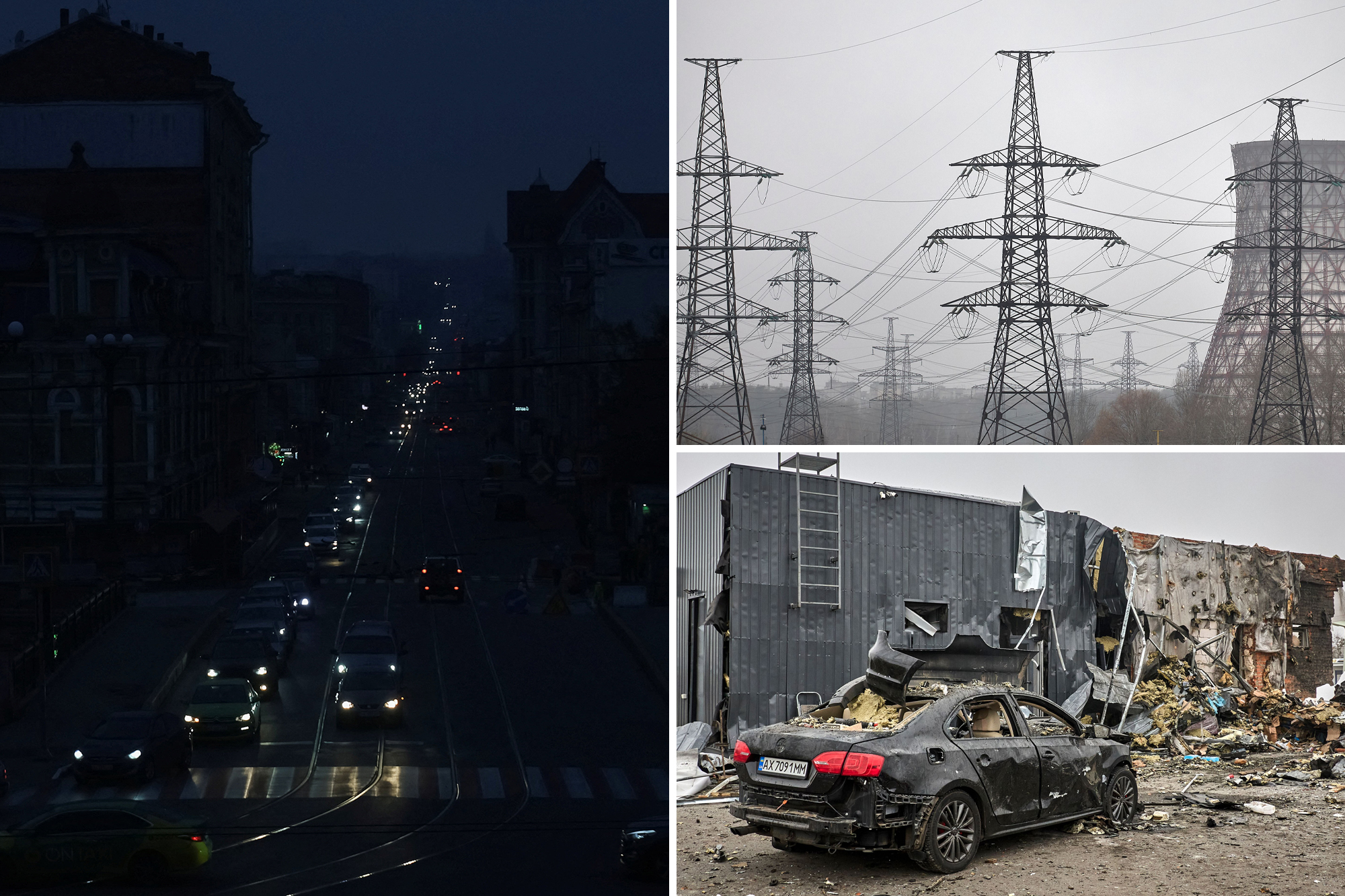World
Russia’s Drone Strikes on Nuclear Plants Raise Safety Concerns

Russia’s recent drone and missile attacks have targeted substations supplying power to two major nuclear power plants in Ukraine, raising alarms about a potential “catastrophic incident” in Europe. The overnight assault on December 3, 2023, resulted in the deaths of at least 12 individuals and has prompted urgent calls for international intervention regarding nuclear safety. Ukrainian Foreign Minister Andrii Sybiha characterized the strikes as deliberate actions that endanger nuclear safety across the continent.
In a statement, Sybiha emphasized, “These were not accidental but well-planned strikes. Russia is deliberately endangering nuclear safety in Europe.” He urged nations that prioritize nuclear safety, particularly China and India, to demand that Russia cease its aggressive actions targeting nuclear energy infrastructure. The Foreign Minister also called for an urgent meeting of the International Atomic Energy Agency (IAEA) in response to the attacks.
The latest assault on Ukraine’s energy infrastructure included the firing of over 450 drones and 45 missiles, which not only struck the Khmelnytskyi and Rivne Nuclear Power Plants but also caused widespread damage to energy facilities in the Kyiv, Poltava, and Kharkiv regions. Ukrainian Prime Minister Yulia Svyrydenko reported that the attacks have left thousands without power and water, necessitating the deployment of emergency crews to stabilize the power grid.
Energy Minister Svitlana Hrynchuk indicated that power cuts would be required to manage the ongoing outages, which have continued despite efforts to restore services. Local news outlets reported persistent blackouts in both Poltava and Kharkiv, underscoring the severity of the situation. The state-owned energy company Tsentrenergo, which generates nearly ten percent of Ukraine’s electricity, confirmed it had halted operations at its facilities in Kharkiv and Kyiv due to the attacks, resulting in a complete cessation of power output.
In response to the attacks, Ukrainian President Volodymyr Zelensky condemned the strikes on the energy grid, linking them to a broader strategy aimed at undermining the country’s energy stability ahead of the harsh winter months. He called on Western allies to impose further sanctions on Russian oil, stating, “For every Moscow strike on energy infrastructure—aimed at harming ordinary people before winter—there must be a sanctions response targeting all Russian energy, with no exceptions.”
The international community continues to watch closely as Ukraine navigates these challenges, with increasing concern about the safety of nuclear facilities in conflict zones. The repeated targeting of vital energy infrastructure highlights the ongoing risks faced by both the population and the broader European region. The situation remains critical as leaders seek to address the threats posed by such aggressive military tactics.
-

 Lifestyle4 months ago
Lifestyle4 months agoLibraries Challenge Rising E-Book Costs Amid Growing Demand
-

 Sports3 months ago
Sports3 months agoTyreek Hill Responds to Tua Tagovailoa’s Comments on Team Dynamics
-

 Sports3 months ago
Sports3 months agoLiverpool Secures Agreement to Sign Young Striker Will Wright
-

 Lifestyle3 months ago
Lifestyle3 months agoSave Your Split Tomatoes: Expert Tips for Gardeners
-

 Lifestyle3 months ago
Lifestyle3 months agoPrincess Beatrice’s Daughter Athena Joins Siblings at London Parade
-

 World3 months ago
World3 months agoWinter Storms Lash New South Wales with Snow, Flood Risks
-

 Science4 months ago
Science4 months agoTrump Administration Moves to Repeal Key Climate Regulation
-

 Science3 months ago
Science3 months agoSan Francisco Hosts Unique Contest to Identify “Performative Males”
-

 Business4 months ago
Business4 months agoSoFi Technologies Shares Slip 2% Following Insider Stock Sale
-

 Science4 months ago
Science4 months agoNew Tool Reveals Link Between Horse Coat Condition and Parasites
-

 Sports4 months ago
Sports4 months agoElon Musk Sculpture Travels From Utah to Yosemite National Park
-

 Science4 months ago
Science4 months agoNew Study Confirms Humans Transported Stonehenge Bluestones









